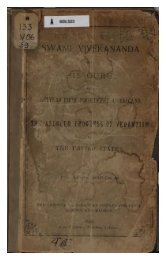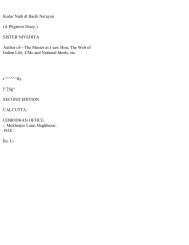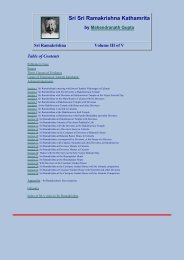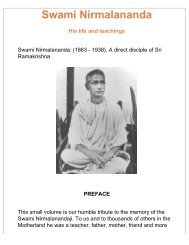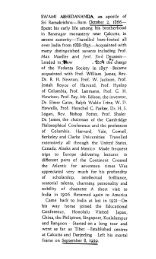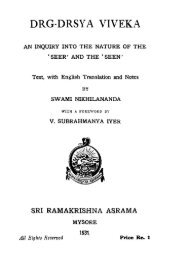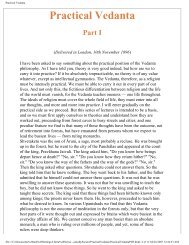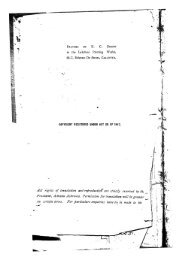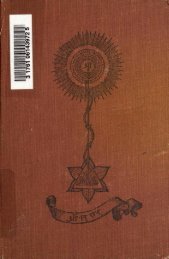Swami Vivekananda - A Biography by Swami Nikhilananda
Swami Vivekananda - A Biography by Swami Nikhilananda
Swami Vivekananda - A Biography by Swami Nikhilananda
Create successful ePaper yourself
Turn your PDF publications into a flip-book with our unique Google optimized e-Paper software.
other embodied beings, who also are embodiments of Brahman.<br />
'If it be the will of God,' Naren concluded, 'I shall one day proclaim this noble truth<br />
before the world at large. I shall make it the common property of all — the wise and<br />
the fool, the rich and the poor, the brahmin and the pariah.'<br />
Years later he expressed these sentiments in a noble poem which concluded with the<br />
following words:<br />
Thy God is here before thee now,<br />
Revealed in all these myriad forms:<br />
Rejecting them, where seekest thou<br />
His presence? He who freely shares<br />
His love with every living thing<br />
Proffers true service unto God.<br />
It was Sri Ramakrishna who re-educated Narendranath in the essentials of Hinduism.<br />
He, the fulfilment of the spiritual aspirations of the three hundred millions of Hindus<br />
for the past three thousand years, was the embodiment of the Hindu faith. The beliefs<br />
Narendra had learnt on his mother's lap had been shattered <strong>by</strong> a collegiate education,<br />
but the young man now came to know that Hinduism does not consist of dogmas or<br />
creeds; it is an inner experience, deep and inclusive, which respects all faiths, all<br />
thoughts, all efforts and all realizations. Unity in diversity is its ideal.<br />
Narendra further learnt that religion is a vision which, at the end, transcends all barriers<br />
of caste and race and breaks down the limitations of time and space. He learnt from the<br />
Master that the Personal God and worship through symbols ultimately lead the devotee<br />
to the realization of complete oneness with the Deity. The Master taught him the<br />
divinity of the soul, the non-duality of the Godhead, the unity of existence, and the<br />
harmony of religions. He showed Naren <strong>by</strong> his own example how a man in this very<br />
life could reach perfection, and the disciple found that the Master had realized the same<br />
God-consciousness <strong>by</strong> following the diverse disciplines of Hinduism, Christianity, and<br />
Islam.<br />
One day the Master, in an ecstatic mood, said to the devotees: 'There are many<br />
opinions and many ways. I have seen them all and do not like them any more. The<br />
devotees of different faiths quarrel among themselves. Let me tell you something. You<br />
are my own people. There are no strangers around. I clearly see that God is the whole<br />
and I am a part of Him. He is the Lord and I am His servant. And sometimes I think He<br />
is I and I am He.'<br />
Narendra regarded Sri Ramakrishna as the embodiment of the spirit of religion and did<br />
not bother to know whether he was or not an Incarnation of God. He was reluctant to<br />
cast the Master in any theological mould. It was enough for Naren if he could see<br />
through the vista of Ramakrishna's spiritual experiences all the aspects of the Godhead.



